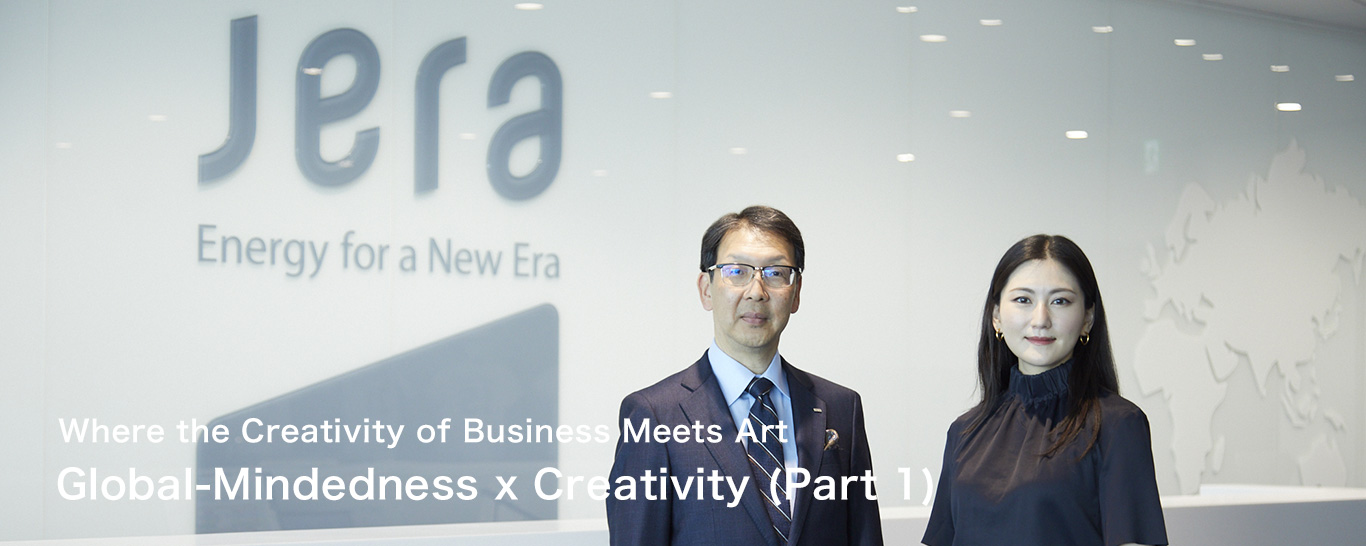
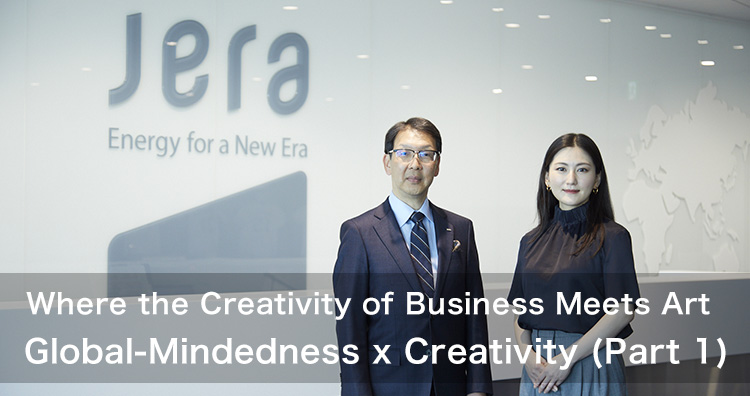
Where the Creativity of Business Meets Art
Global-Mindedness x Creativity (Part 1)
4 April 2023
Okuda:First of all, I am very honored to be able to speak with you today. But this is not the first time we’ve met. We've spoken on two other occasions, and I found your stories inspiring to a businessperson like myself, so I was eager to make this discussion happen.
The theme of this series is "Global-Mindedness x Creativity,” and we’re planning some exciting conversations with people from different industries. (Okuda)
Okuda:First, please let me briefly introduce JERA and discuss our intentions behind this interview series.
JERA was initially formed by integrating the fuel, thermal power generation, and overseas businesses of Tokyo Electric Power Company (TEPCO) and Chubu Electric Power Company. In 2019, we announced a new mission to “provide cutting-edge solutions to global energy issues.” The words “global” and “cutting-edge solutions” are vital to us. Without the power of globally viable creativity, it would be impossible for us to provide world-class solutions. And that’s why this series is specifically focused on the themes of global-mindedness and creativity.
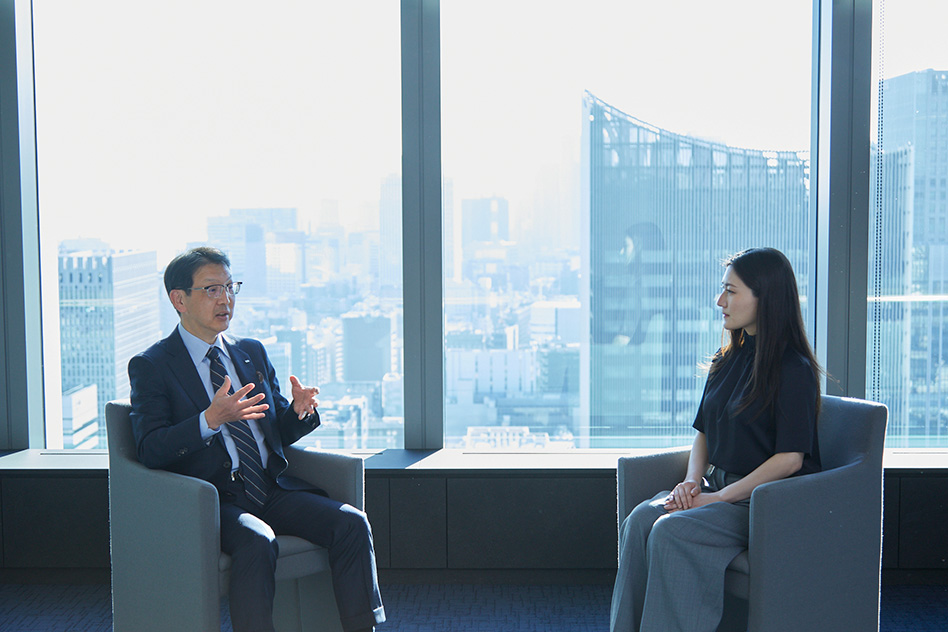
Ayako Tanaka is a soprano making waves and generating new value in the classical music world. Here I ask her about the hard work and hardship behind her success and what it takes to acquire a global level of creativity while exploring the source of her creativity. In addition to speaking with Ayako today, I also plan to interview many individuals who are creating value on a global level, including historians, scientists, venture capitalists, and others from a variety of industries. My hope is that by exchanging ideas among these different experts, we can discover new values that overlap between industries.
Okuda:Ayako, I’d like to hear about your personal history and learn the secret of your success and the source of your creativity. To kick things off, I heard you traveled to Vienna alone when you were just 18 years old. Can you talk me through your thought process when you decided to go it alone?
My first foray into singing was far from romantic, but I thought I had a good chance of success. (Tanaka)
Tanaka:I started learning the piano at my kindergarten when I was three years old, where there happened to be a music school on the premises. I used to practice there after school. I think I just kept playing because I liked it, even though there weren't any musicians around me or in my family. It wasn't like I had someone to tell me to keep practicing to become a pianist. For me, playing the piano was another part of my daily routine, like eating, brushing my teeth, or doing my homework. I took it for granted that I would play the piano and just assumed that I would continue to do so. I had this vague desire to become a professional musician, and when I was in high school, I wondered if I would be able to pursue a career as a pianist in the future.
But during my second year of high school, I noticed some things that made me feel like a career as a pianist may be difficult, especially after career counseling sessions. I couldn’t play as well as I wanted to because my hands were too small. By my late teens, I felt I had reached the limit of my ability. I started to feel like I couldn't go on, which was a sign to me that it was already hopeless, so I decided to quit. I thought that even if I continued, I would never make it as a professional pianist. However, since music was still such a large part of my life, I was looking for something else when I was introduced to singing.
Until then, I had no interest in singing and had never sung before, but there’s no initial investment required for singing, unlike with an instrument, which costs a lot of money just to see if you like it. It doesn’t cost you anything to start singing. [laughs] I decided to give it a try and was introduced to a vocal trainer who told me that I had a very high and rare quality to my voice. With such a rare voice, I thought I might have a chance of success. As I was hoping to become a professional, I turned to the option with the highest probability of success: singing. It wasn’t a romantic beginning at all.
So, right from the start, if you were going to do it at all, you wanted to be the best. (Okuda)
Okuda:I see. In a sense, your encounter with singing was coincidental. You didn't think you would succeed as a pianist, but you still had a passion for music. And if you were going to pursue a career in music, you wanted to be number one. You wanted to be world-famous from the very beginning. So, you chose singing, where you had the most potential.
Tanaka:Yes, that's right. I didn't want to pursue music unless I could make a decent living as a professional musician. I was always concerned about whether the odds were in my favor.
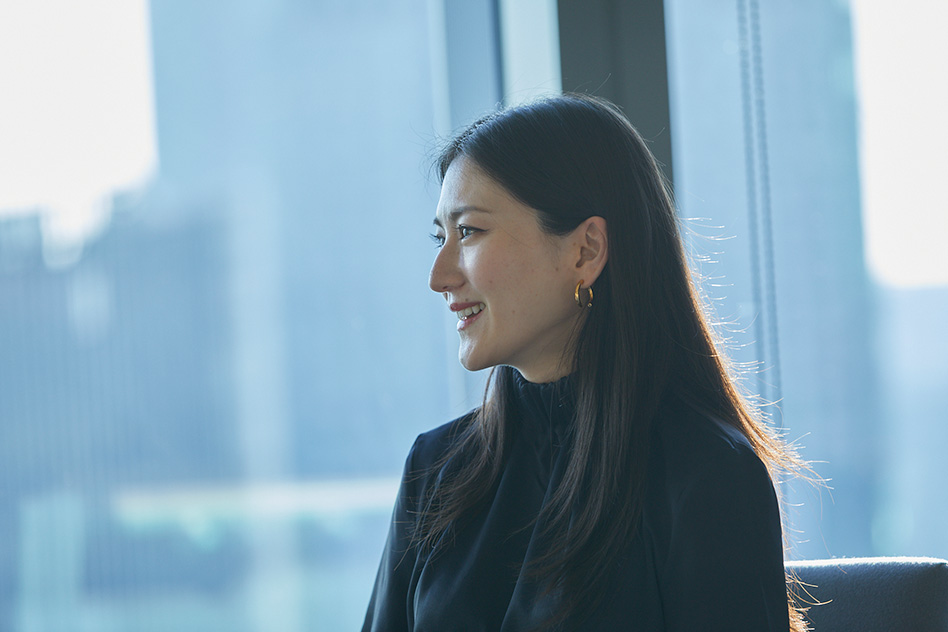
I made a quick decision to go to Vienna. It seems like the things we want to do most are often the most difficult, and I chose the difficult path. (Tanaka)
Okuda:What prompted you to go to Vienna?
Tanaka:It was about six months after I decided to pursue a career in singing, and I still hadn’t accomplished much of anything yet, when my teacher invited me to go on a research trip to Vienna with other university students. Looking back, I didn't even know what singing was all about, but I knew that Vienna had been home to famous musicians such as Mozart and that it was somewhere aspiring classical musicians longed to visit, so I tagged along without really understanding why. At that age, my parents still didn’t let me stay out overnight, but with the Vienna trip, they encouraged me to go and sent me on my way. I had the opportunity to take a one-week course from a court singer who had worked in opera houses around the world, and they asked me to come to Vienna immediately. I made up my mind and said yes right then and there. I never imagined I would study abroad in Vienna, but it was like I was swept away by the tides of fate, and everything happened so smoothly. Making these connections was just happenstance. It was all so strange, and everything came together so effortlessly.
Okuda:You just said that these connections were “happenstance,” but without making the decisions you made, you wouldn't be where you are today. You had to make some very big choices that would be challenging for many people to make. How did you come by your decisions? Is that just your personality? [laughs] I think most young people, if they were to receive an invitation like this at eighteen, would normally choose a safer path, like going to college in Japan before studying abroad.
Tanaka:When I have several options to choose from, I always choose the impossible one, the one that seems the most difficult. Whenever I feel that something is difficult or impossible, it's probably because that is the very thing I want to do most. It only feels impossible when I think about the circumstances surrounding my decision. Personality-wise, I’m the type of person who can never forget an opportunity that really interested me if I compromise and choose a safer alternative. Even if I had stayed in Japan to continue my music career, I was always going to experience difficulties, so if I was going to struggle anyway, I decided that I might as well take the most challenging path, which was to go to Vienna. I figured that even if it didn’t work out, I would be satisfied having chosen the most challenging option.
Okuda:You must have faced many hardships in Vienna before making your opera house debut. I don't think an average eighteen-year-old Japanese kid can travel alone and have things go so smoothly. What did you do differently, and what difficulties did you face?
Tanaka:There were many unexpected difficulties living alone in a foreign country. I didn’t do any research on how living there would be completely different from living in Japan. There were no convenience stores, and supermarkets were only open on weekdays. They used hot water tanks, which would turn cold if you took too long of a shower, and you had to use a match to light the stove. Plus, there were no cell phones or internet at that time. The most difficult thing for me was not being able to properly articulate what I wanted. Learning the language was probably the first big effort I had to make since I only started learning German after I arrived there. [laughs]
And I had just started training as a singer for the first time in addition to all of that. Being a singer is undoubtedly one of the most physically demanding occupations. You have to strengthen your core muscles almost as if it’s some kind of sport because you’re constantly breathing from your diaphragm. At first, I didn’t have any core strength and couldn't do diaphragmatic breathing, so I often felt dizzy and even fainted during practice. That's how exhausted I was every day, but even so, I enjoyed my first year because there were so many new things to learn. My third or fourth year was probably the hardest, once I had settled into my new daily routine in Vienna. But it would have been challenging, no matter where I went.
A little bit of recklessness may be another key ingredient to competing globally. (Okuda)
Okuda:What were the circumstances that led to your theater debut?
Tanaka:I was scouted by a judge the first time I participated in an international competition in Switzerland, where I was invited to compete. I had decided to enter the competition because I’m generally not one to turn down an invitation. One of the judges was affiliated with a theater, and shortly after the competition, I was scouted over the phone. Six months later, I was offered the chance to make my debut. I remember suddenly receiving a call from an unknown number. When I answered, the caller said, "There's an opera at the ‘something-or-other’ theater. Would you like to perform?” I couldn't catch the name of the theater and didn't know which opera it was, but I agreed to do it—like I said, I never turn down an invitation. Later, I received an email with the name of the opera, which I had never sung before, but I was determined to give it a try.
Okuda:Another bold decision. [laughs] So, what opera was it?
Tanaka:It was Mozart's “The Marriage of Figaro.”
Okuda:Of all the things we've talked about so far, this amazing ability to make snap decisions and take action is, for lack of a better word, daring and optimistic. [laughs] But I am starting to believe that this quality may be something that’s necessary to compete on a global level.
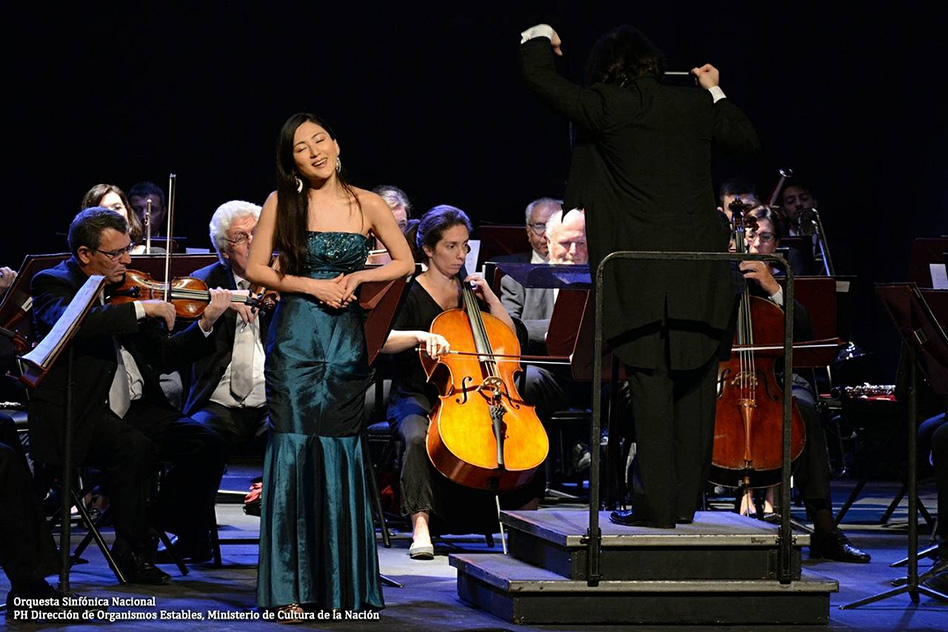
I knew I could never succeed by being average. I believed that honing my skills as a coloratura soprano in my own unique way would give me the edge I needed to succeed. (Tanaka)
Okuda:So, did things go smoothly after you made your theater debut?
Tanaka:No, not really. After my debut, I became more aware of how many people were involved and what kind of preparations were needed to make a stage performance happen. Until then, my only focus was battling my inner critic to beat my anxiety and sing beautifully on stage. But once I realized that it wasn’t just about me, there was also the added pressure of performing well for everyone involved in the production. That changed my way of thinking. Through this process, I began to think about what I was best at, where my strengths lay, and what arsenal I could use to get a steady stream of work in a foreign country.
Okuda:And in that process, you discovered coloratura, right? (Coloratura soprano is a technique of singing distinguished by agile runs, leaps, and trills.)
Tanaka:Yes, that's right. Coloratura is, of course, the strongest weapon in my arsenal, but there are many different kinds of coloratura, so the question for me was which one to pursue. In Japan, there's a tendency to aim for the average score across all subjects, but I knew this approach would never work outside of Japan.
For example, coloratura aside, there is no area where I excel. In the European music world, being a foreigner put me at a disadvantage, and not being a native speaker made it even harder—not to mention that I’m quite small for an opera singer. I felt as though these factors put me far behind my peers, no matter what I did. I realized I couldn’t gain the same footing as others by being average. The people who can win by getting average scores are those who begin at the starting line. But for people like me who work outside their home country, starting behind the pack means that average scores won't cut it. So I jotted down my strengths and weaknesses. I decided I would try and compensate for my shortcomings but wouldn't dwell on them. Instead of trying to bring my weaknesses up to average, I thought I would have a better chance of success if I honed what I thought were my strengths.
So, basically, you needed a differentiation strategy to compete globally. (Okuda)
Okuda:That’s a fascinating story. Companies and business people need to have the same mindset when competing abroad. In the business world, we call that a differentiation strategy: finding an area where you are unique and distinct to stand out from the rest in order to compete. In particular, companies that enter the market later do not try to compete directly with other companies by offering the same products or services but secure their market share by leveraging their strengths in areas that other companies fail to address. You are doing precisely that in the art world through your singing.
Incidentally, I am also a classical music enthusiast. When I first heard you sing, I was impressed with your coloratura, which was unlike anything I had heard before. Your songs always resonate with me and touch my heart in the most natural way, and your voice has a softness despite its high pitch. Now I realize that there was a differentiation strategy behind your singing style. Instead of imitating someone else, you expressed a desire to differentiate yourself using your own strengths, which has made you the person you are today.
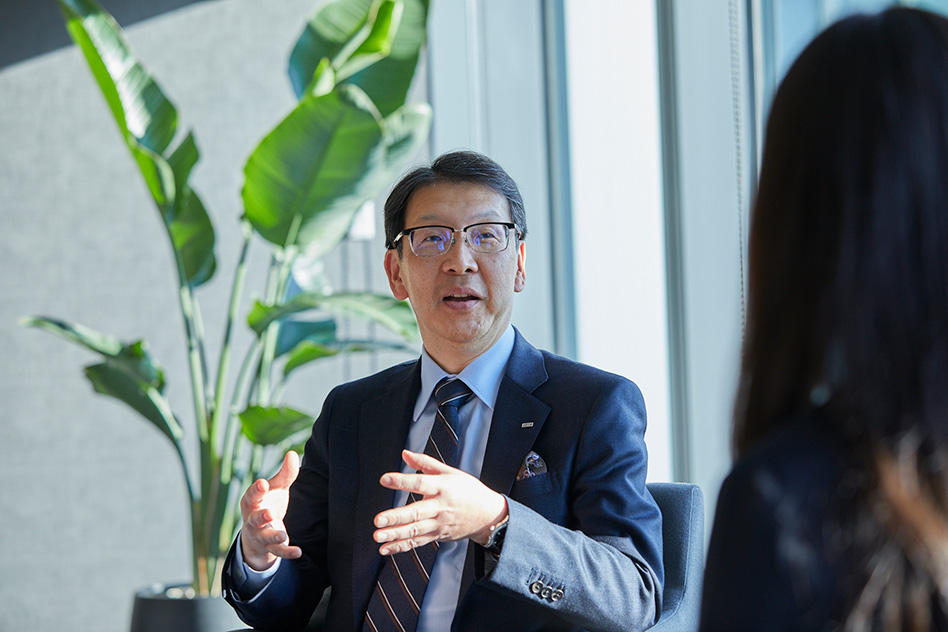
So far, we have heard you reflect on your life story, and I think we have already heard some insights into what it takes to apply creativity globally and become successful. The first is a daring—almost reckless—level of determination, and the second is a differentiation strategy. Another important point I noticed is that you never miss an opportunity. In our conversation, you mentioned that taking chances was a crucial factor that has led to your success. I think you may be the type of person who recognizes an opportunity, no matter how small, whenever one comes along. Taking advantage of even the tiniest opportunities may be another key to your success.
(To be continued)
INTERVIEWER
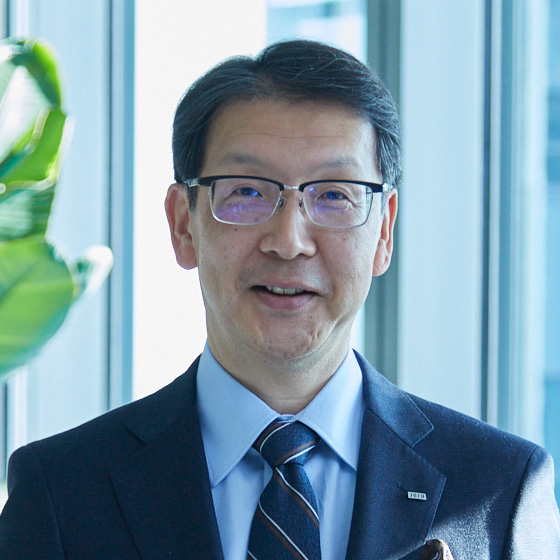
Hisahide Okuda
President, Director CEO & COO
JERA Co., Inc.
Okuda joined Chubu Electric Power Co., Inc. in 1988 and served as General Manager, Strategies & Alliances Office, Head of Corporate Planning & Strategy Division starting in 2017. After being promoted to Senior Managing Executive Officer and Chief Operating Officer of the Corporate Strategy Department in 2019, he served as Director of the Corporate Strategy Department before becoming Corporate Vice President and Senior Managing Executive Officer. In April 2023, he became President, Director, and CEO & COO of JERA Co., Inc.
GUEST
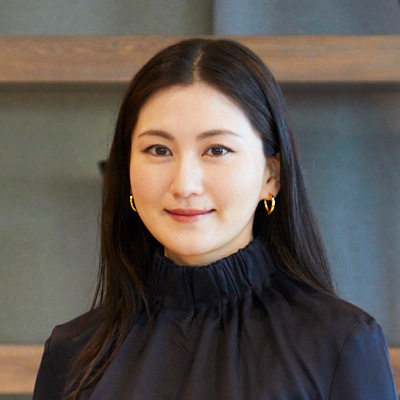
Ayako Tanaka
Soprano singer
CEO, Japan Association for Music Education Program
At the age of 18, Tanaka traveled to Vienna alone to study. At 22, she made her debut at the Stadttheater Bern in Switzerland, becoming the youngest soloist ever in the theater and the first Japanese person to perform there. Since then, she has performed in Vienna, London, Paris, Buenos Aires, and many other cities worldwide. Her premiere concert of „Five Circle Songs for Coloratura Soprano and Orchestra“ composed for her voice by Esteban Benzecry, was chosen the Best World Premiere Piece by the Argentine Music Critic Association. The album received five stars from the BBC Music Magazine, the world's best-selling classical music magazine.
Tanaka is also engaged in giving back to society through activities such as the SCL International Youth Music Festival held in Vienna with the support of UNESCO and the Austrian government to assist young performers, as well as the National Youth Orchestra of Argentina, which was established with the support of the Argentine government to provide education to young people of various backgrounds and family situations through music.
Tanaka was named one of Newsweek's "100 Most Respected Japanese in the World" in 2019. She sang the Japanese national anthem on October 22 at the opening ceremony of the SMBC Nippon Series 2022.
Born in Kyoto, Tanaka lives and works in Vienna.
RELATED STORIES
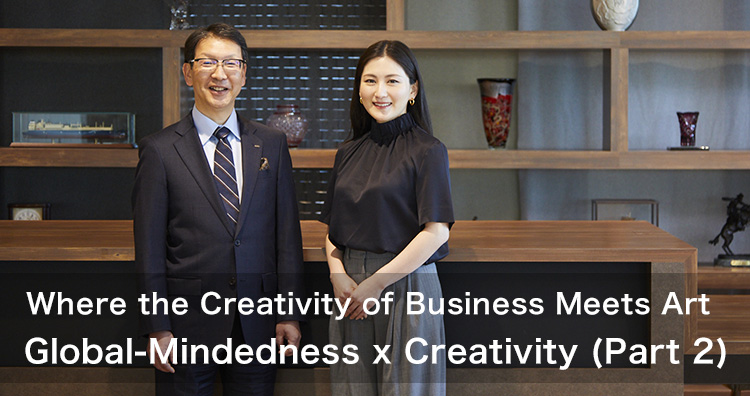
Where the Creativity of Business Meets Art Global-Mindedness x Creativity (Part 2)
In our previous conversation, I felt that some of the keys to your global success were your decisiveness, …
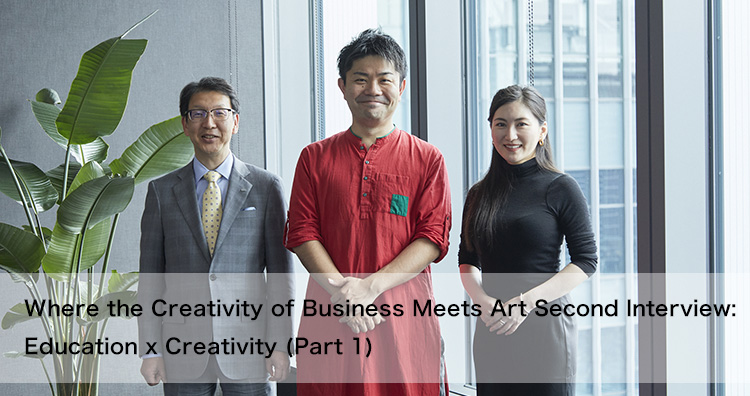
Where the Creativity of Business Meets Art Second Interview: Education x Creativity (Part 1)
Today marks the first time we’re doing a three-person interview. We are joined by Mr. Kaito Miwa, CEO and co-founder of …

Where the Creativity of Business Meets Art Second Interview: Education x Creativity (Part 2)
Recently, I've developed a new presentation style, where I seek to connect with the audience by openly sharing my weaknesses

